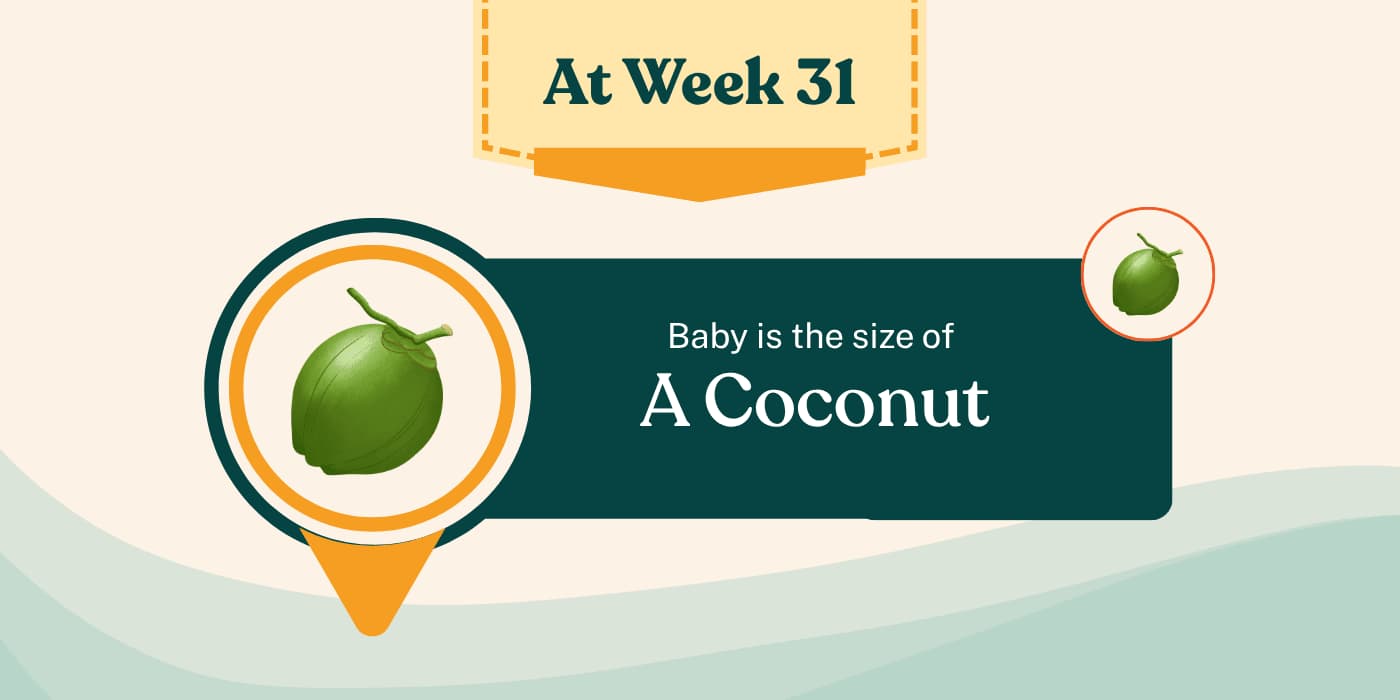Your Pregnancy at Week 31
Science photo library
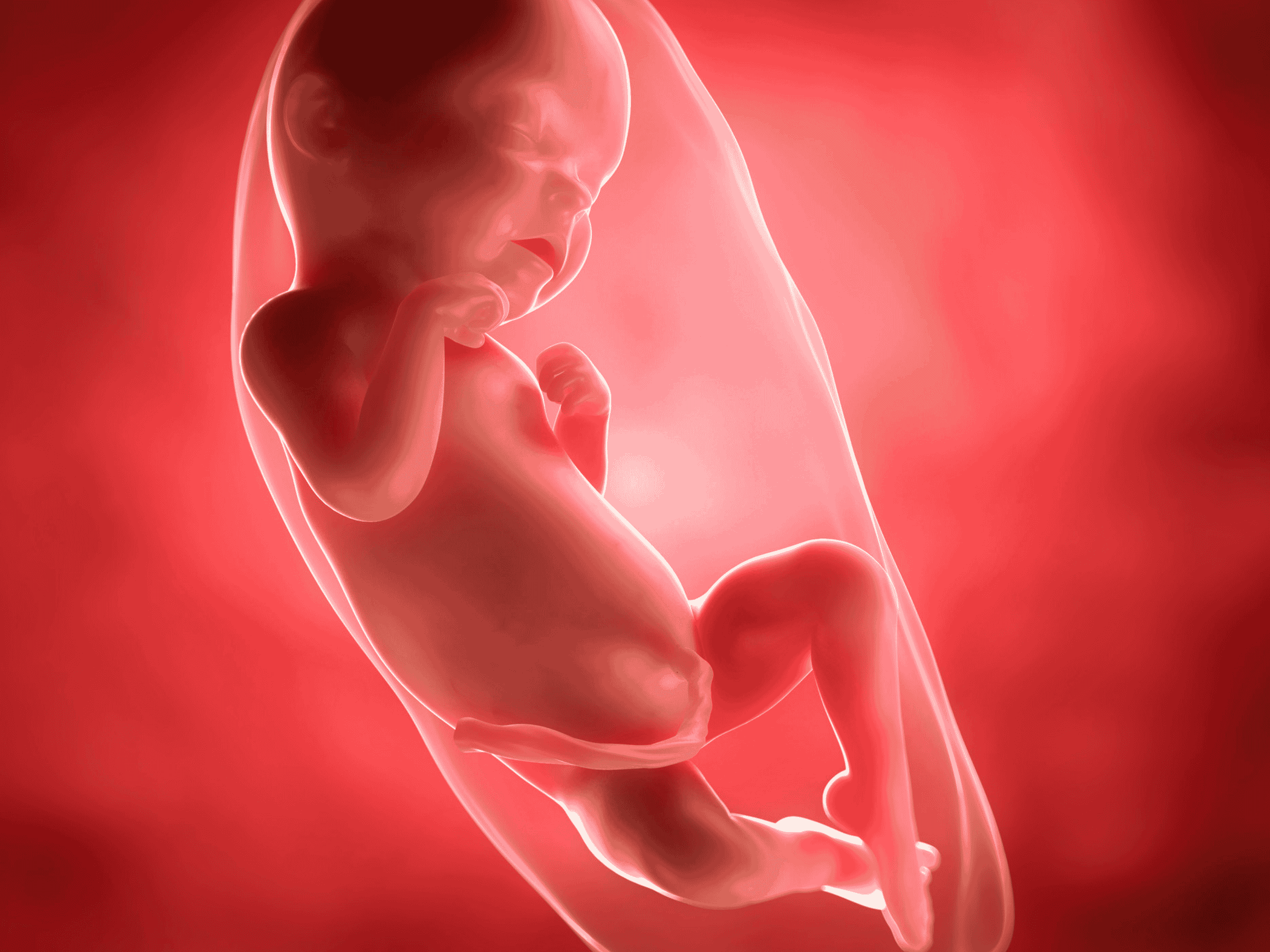
Written by Mindsmaking Medical Writer
Fact Checked by Mindsmaking Professionals
24th, November, 2025
At 31 weeks, you're nearing the end of the seventh month of pregnancy. Your baby is developing more intelligence and starting to behave independently.
You are now in your 31st week and almost completing your seventh month of pregnancy. It must be exciting, as you have roughly nine weeks to go. Hang in there!!! Your baby is becoming smart and is starting to behave independently.
Key Takeaways
At 31 weeks, your baby can turn their head from side to side and may be very active with kicks and flips, which could disrupt your sleep. This high level of activity is a positive sign of a healthy baby.
Your baby measures around 16.18 inches and weighs about 1502 grams, comparable to a coconut.
At 31 weeks pregnant, your baby's head likely presses on your bladder, causing frequent urination, especially at night.
By this stage, your baby might be head down, which is ideal for birth. If they are head down, you may have felt their movements and noticed your bump appearing lower.
Hormonal changes, extra fluid, and bladder pressure from the growing uterus cause frequent urination.
Monitor your blood pressure regularly. Readings of 140/90 mm Hg or higher twice in four hours require medical attention.
Drink 8-12 cups (64-96 ounces) of water daily to aid digestion, prevent constipation, and alleviate Braxton Hicks contractions.
Take a class on infant CPR and first aid to handle potential emergencies. Classes are available at community centres or through healthcare providers.
If interested in natural childbirth, research preparation methods and discuss alternative pain relief and support options with your healthcare provider.
Take a peek

Developing brain connections
Your little one's brain connections are developing rapidly. Connections between individual brain cells are being made to coordinate the baby's functions.
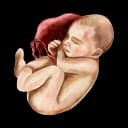
Sleepy baby
Your baby is now a sleepy one, taking a nap for extended periods, especially rapid eye movement sleep. Do you want to stir her up? Try having a cold drink or gently shifting your position.

Smart One
Your smart baby can now process information and detect signals from all five senses.
Baby Development at Week 31
Your baby can now turn their head from side to side and might be moving so much with kicks and flips that it's affecting your sleep. Rest assured, this activity is a sign of a healthy and active baby. They also develop a layer of fat under their skin, giving them a more newborn-like appearance. Over the next few weeks, your baby will continue to gain weight. (3)
Their eyes are still developing, and now the pupils can adjust to light coming through the uterus. The eyelids will likely open when your baby is awake and close during sleep. At 31 weeks, your baby sleeps longer, so you might notice a pattern in their movements. Their brain is also becoming more active, allowing them to process information from their senses. While your baby can't smell much, they can taste and sense the foods you eat through the amniotic fluid.
At 31 weeks, your baby's eyes can begin to focus rather than just respond to light, as they have since the second trimester. After birth, they won't immediately see or track moving objects like adults; this skill develops over the first few months.
Meanwhile, your baby's brain works intensely, rapidly forming connections between nerve cells. It's processing information, tracking light, and receiving signals from all their senses. (9)
Mindsmaking
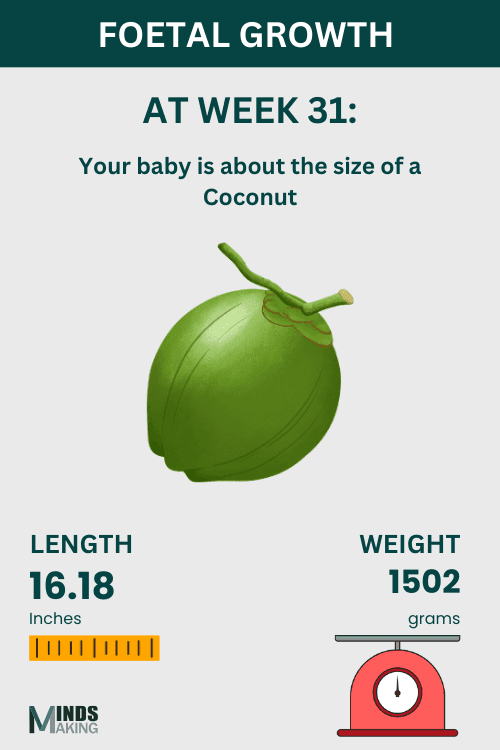
Body Changes at Week 31
At 31 weeks pregnant, your baby's head is likely pressing on your bladder, leading to more frequent urination. This issue can be worse at night as the fluid that causes swelling in your legs and feet during the day shifts to your bladder. On the bright side, you might find that your ankles look less swollen by morning.
Frequent trips to the toilet can disrupt your sleep, so try to rest and take naps during the day if possible. Your body is preparing for breastfeeding, and you may have recently noticed some colostrum, your baby's first milk, leaking from your nipples. If this happens, nursing pads in your bra can help protect your clothes. Don't worry if you haven't seen colostrum yet; your breasts are still producing it.
Clumsiness is common at this stage of pregnancy due to weight gain, changes in posture, and reduced concentration. To avoid falls, be cautious, avoid wearing slippery shoes or socks, and be careful on any slick surfaces.
Read This Next
No posts available
Baby Bump At Week 31
Even though you might feel quite large, your bump still has room to grow. Your midwife will measure your uterus from the top of your bump to the top of your pubic bone to ensure everything progresses normally.
Your midwife may also check your baby's position. By this stage, your baby might be head down, which is ideal for birth. If they are, you may have felt their movements as they settled into this position, and your bump might appear lower. If your baby isn't head down yet, there's still time for them to turn, but your midwife will monitor their position as a breech presentation can make delivery more challenging.
Your midwife might also mention if your baby's head is engaged, meaning it has moved into the pelvis in preparation for birth. This usually happens between 34 and 38 weeks, but if you've given birth before, it may not occur until labour begins.
Pregnancy Symptoms at Week 31

Leg and back pain
Leg cramps are common at this stage of pregnancy, particularly at night. To ease them, lie on your side with your knees bent and a pillow between your legs. Place another pillow under your belly for added support. This position can also help relieve back pain. If the cramps and back pain become too severe, consider seeing a massage therapist who specialises in prenatal care. Avoid massaging any areas that are warm, red, or painful, as these could signal a blood clot, a risk during pregnancy. Contact your doctor immediately if you suspect a blood clot. Staying active and drinking plenty of fluids can also be beneficial.

Haemorrhoids
You might develop haemorrhoids, which are swollen and often painful veins near the rectum. Consult your doctor about safe over-the-counter creams or pads for use during pregnancy. Witch hazel pads can also help, but be sure to replace them regularly. If you sit for extended periods, try getting up and moving around often to reduce pressure on your backside. If a haemorrhoid becomes very painful, bleeds, or bulges, it could be a thrombosed haemorrhoid, which might need a minor surgical procedure. Constipation, which is also common during pregnancy, can aggravate haemorrhoid pain, so be sure to consume plenty of fibre and drink enough water each day.
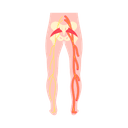
Sciatica
If you're experiencing sharp or dull pain starting in your lower back and radiating down to your buttocks and legs, you might have sciatica. This condition occurs when the sciatic nerve, which extends from your lower spine through your buttocks and down the back of your legs, gets compressed, inflamed, or irritated. Sciatica is relatively common during pregnancy, particularly in the later months when your growing baby puts additional pressure on the sciatic nerve. As your baby positions themselves for birth, their head might also rest on this nerve, causing pain. This pain should subside after delivery. In the meantime, you can alleviate it by using warm compresses on your back, gently stretching your muscles, and performing Kegel exercises and pelvic tilts (like the cat/cow pose). You might also consider discussing options like acupuncture, prenatal massage, and pain relief medication with your healthcare provider.

Feeling exhausted
At 31 weeks pregnant, feeling tired and weak is quite common due to the increased demands on your body as it supports your growing baby. As your pregnancy progresses, getting a restful night's sleep can become more challenging, contributing to fatigue. To manage this, try taking naps during the day whenever you can to alleviate some of the tiredness. Maintaining a healthy diet and engaging in regular, moderate exercise can also help boost your energy levels. However, if you find your fatigue overwhelming or concerning, it's important to consult with your healthcare provider to ensure no underlying issues.
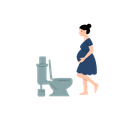
Frequent urination
Frequent urination is common in pregnancy due to hormonal changes, additional fluid in your body, and pressure on your bladder from the growing uterus. Some women may experience urine leakage when coughing, laughing, sneezing, or exercising. This can happen because pregnancy hormones relax the pelvic floor muscles and ligaments, and the expanding uterus exerts pressure on the bladder and pelvic floor. While this type of urinary incontinence may improve after delivery, it might continue into the postpartum period. Performing Kegel exercises can help strengthen the pelvic floor muscles and potentially reduce urinary incontinence.
Pregnancy Concerns at Week 31
UTIs are common during pregnancy due to hormonal changes in your body. Progesterone, the hormone that helps maintain your pregnancy, relaxes the muscles in the tubes connecting your kidneys to your bladder, which slows down urine flow. This gives bacteria more time to grow before being flushed out, potentially leading to a UTI. Symptoms of a UTI include a stinging or burning sensation when urinating, frequent or urgent need to urinate, pain in your back or lower abdomen, a high temperature, shivering, nausea, vomiting, or blood in your urine.
Sometimes, a UTI can occur without noticeable symptoms, so your midwife will routinely check your urine. Prompt treatment with antibiotics is crucial, as UTIs can increase the risk of preeclampsia, premature rupture of membranes, premature birth, or low birth weight.(10)(7)
You should always inform your healthcare provider if you experience severe pain during pregnancy. This week, you might start feeling Braxton-Hicks contractions, which are harmless practice contractions that prepare your body for labour. These contractions typically last a minute or two, but if they become longer, more frequent, or more intense, contact your doctor, as it could indicate early labour.
While it's best for babies to be born at 40 weeks, most babies born after 31 weeks have a good chance of surviving and thriving, though they may need care in a neonatal intensive care unit.
Preeclampsia, a potentially serious condition that can affect both you and your baby, is more likely to develop now, though it can occur earlier or even after childbirth. This condition may not always show clear symptoms. If you monitor your blood pressure at home and get readings of 140/90 mm Hg or higher twice within four hours, seek medical advice. Preeclampsia can also cause organ damage, particularly to the kidneys. If you don't have a home blood pressure monitor and experience severe headaches, pain in your upper right abdomen, vision changes, or nausea, contact your doctor immediately or go to an emergency department. (6)
Health Tips for Week 31
Stay active
If you have a desk job or spend much time sitting, moving every hour is crucial. Sitting for long periods can reduce blood flow in your lower limbs, increasing the risk of swelling, discomfort, and even blood clots. Regular movement helps improve circulation and reduce these risks. In addition to taking breaks throughout the day to walk around, aim for daily exercise. Walking is particularly beneficial during pregnancy. Adding inclines or increasing your pace can help elevate your heart rate, improving cardiovascular health and maintaining fitness. This regular activity supports overall well-being, helps manage weight gain, and can alleviate pregnancy-related discomfort. Always consult your healthcare provider before starting any new exercise routine.
Get enough vitamin C and iron
Vitamin C is essential for maintaining a strong immune system and building healthy bones. It's commonly found in broccoli, citrus fruits, and tomatoes and is often included in prenatal vitamins. For those over 19, the daily recommended intake is at least 85 mg. (2)- Iron is equally important during pregnancy due to the increased blood volume needed to support your growing baby. It helps your body produce the additional blood required. The recommended daily intake is at least 27 mg, which can be obtained from prenatal vitamins and iron-rich foods like red meat, lentils, cereals, and beans.
Continue staying hydrated
During pregnancy, it's advised to drink between eight to twelve cups (64 to 96 ounces) of water daily. Although it may seem like a lot, staying well-hydrated has many advantages, including aiding digestion, preventing constipation, and alleviating Braxton Hicks contractions. If you struggle to drink enough water, consider getting a water bottle with time markers or a fun design. This type of bottle helps you keep track of your intake throughout the day and is convenient to carry around, reducing the need to refill a glass constantly.
See a dentist
Regular teeth cleanings are especially important during pregnancy because about 58% of pregnant women experience periodontal disease, which can elevate the risk of developing preeclampsia, a serious condition marked by high blood pressure. While dental cleanings are beneficial, dental X-rays are generally advised to be postponed until after delivery. This is due to the minimal but present risk of radiation exposure to the developing foetus. However, suppose an X-ray is necessary for your dental health. In that case, it's crucial to protect your baby by wearing a lead apron or abdominal shield to cover your lower abdomen during the procedure.
Find comfortable sleep positions
As your pregnancy progresses and your belly grows, finding a comfortable position can become challenging. Experts suggest lying on your side with one or both knees bent to help alleviate discomfort. A pillow between your knees and under your belly can provide extra support and comfort. Alternatively, a full-length pregnancy pillow can offer additional cushioning and alignment. Learn about our best pregnancy pillows for restful sleep.
Advice for Partners
Caring for a new baby involves a lot of responsibility, which can make you feel worried or anxious. One way to help with these feelings is to be prepared for emergencies. You might want to take a class on infant CPR and first aid to learn how to handle potential problems. You can find these classes at local community centres or by asking your partner's healthcare provider for recommendations.
While caring for your pregnant partner, it's also important to look after your health. When the baby arrives, you'll need plenty of energy, so focus on eating a balanced diet and staying active. Schedule a routine health checkup with your healthcare provider to ensure your immunisations are current and that you're healthy.
Pregnancy Checklist for Week 31
- If you plan to place your baby in daycare and haven't arranged it yet, visit some daycare facilities this week. It will be more convenient to visit the centres without your baby.
- Go over your packing checklist and prepare your bag with all the essentials for your hospital stay. Keep it in an accessible spot and inform your partner about its location.
- Monitor your baby's movements by tracking their usual patterns. This helps you detect any changes that might require medical attention. Try to feel at least 10 movements within two hours.
- Now is an excellent time to socialise with friends or family or enjoy a special dinner date with your partner before the baby arrives. Once your little one is here, you will focus on them for the next few months!
- If you're interested in natural childbirth, research how to prepare for a natural delivery. If it's a feasible option, according to your healthcare provider, consider alternative pain relief methods and how your birth partner or doula can support you.
Frequently Asked Questions
How big is my baby at pregnancy week 31?
By week thirty-one, your baby weighs 1502 grams and is about 16.18 inches in length – comparable to a coconut. They are getting closer to the birth length but still need to gain another 3 to 5 pounds before the birthday.
What position should my baby be at 31 weeks?
As your baby grows, you might wonder about their position in your womb. At 31 weeks, there's still enough space for your baby to move around so they can lie sideways across your abdomen, head-down, or in another position. They will begin to settle into a more fixed position closer to 35 weeks, making it more difficult for them to change their position as you approach the end of your pregnancy.
How big is a baby bump at 31 weeks?
At around 31 weeks of pregnancy, your baby grows rapidly, so your bump is also getting larger. You might notice some weight gain as your uterus expands to accommodate your growing baby. By this stage, your bump may have grown to the point where it sits roughly halfway between your breasts and your belly button. This growth is normal as your body makes space for your baby's continued development.
. What is happening in my body at week 31?
At 31 weeks pregnant, increased bladder pressure from your baby can lead to more frequent urination, especially at night. Swelling in your legs and feet during the day may contribute to this issue, though your ankles might look less swollen by morning. Frequent trips to the toilet can disrupt your sleep, so try to rest and nap during the day if possible. Colostrum leakage is common as your body prepares for breastfeeding, and using nursing pads can help manage this. Clumsiness is also typical due to weight gain and changes in posture.
Was this article helpful?
How many stars are you giving this article?
Leave a comment
Your email address will not be published.
